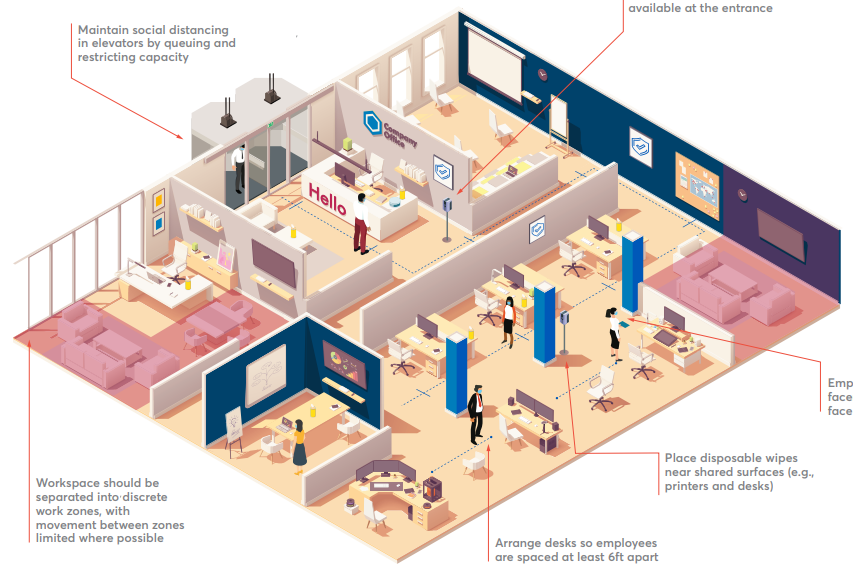Lamont Eases Some COVID-19 Capacity, Travel Restrictions

Connecticut will ease some COVID-19 restrictions and change its travel advisory from a requirement to a recommendation, Gov. Ned Lamont said March 4.
The state will eliminate capacity limits for restaurants on March 19 while maintaining an eight-person-per-table limit and an 11 pm curfew.
Capacity limits will also be eliminated March 19 for offices, retail stores, gyms and fitness centers, museums, aquariums, zoos, personal services, libraries, and houses of worship.
Beginning April 2, outdoor event venues can increase capacity to 50%—to a maximum of 10,000 people—while indoor stadiums can open at 10% capacity.
In addition, outdoor amusement parks can open their gates April 2, Lamont said.
However, movie theaters and performing arts venues will continue at 50% capacity, and bars that don’t serve food must remain closed, he said.
Vaccinations
“I think Connecticut has earned it,” Lamont said. “It’s been tough and people have been frustrated.
“A lot of our businesses have really suffered and people took a hit.”
Lamont announced the change as the state had issued 681,000 first doses of the coronavirus vaccine, 381,000 second doses, and its coronavirus positivity rate dipped below 2%.
The state will still continue to mandate face coverings, social distancing, and cleaning and disinfecting protocols, Lamont said.
“I think we’re finding what works is wearing the mask, social distancing, and vaccinations,” he said.
Travel Advisory
Connecticut’s travel advisory will be modified March 19 so that people arriving from most other states and countries will be asked, but not required, to quarantine for 10 days.
Other changes taking effect March 19 include increasing the capacity of social and recreational gatherings held at commercial venues to 100 people indoors and 200 outdoors.
The state’s travel advisory will be modified March 19.
Also, social gatherings at private residences go to 25 people indoors and 100 outdoors.
Despite the changes, Lamont urged people to use common sense.
“If you’ve all been vaccinated, obviously it’s a different situation, but if you’re with a lot of strangers, wear the mask,” he said.
Remote Work
In the case of offices, he said remote working should still be encouraged.
“If people can telecommute, you don’t need to have everybody in there and it’s probably a little bit safer,” he said.
He also said all sports will be allowed to practice and compete starting March 19, subject to state Department of Health guidance.
“If people can telecommute, you don’t need to have everybody in there.”
Gov. Ned Lamont
And summer camps and summer festivals are advised to begin the planning stages April 2 for the upcoming season.
“It feels good that we’re able to do this,” he said.
“It feels good that we’ve been slowly reopening since May 20 and we really haven’t had to turn back.”
Phases
Lamont initially issued restrictions on which businesses could operate last spring as the coronavirus pandemic took hold.
He eased some of those restrictions in June as the state’s testing positivity rate fell.
The state further eased restrictions in October when it moved to the third phase of reopening.
But as the number of confirmed cases rose in November, Lamont rolled back some third phase conditions, then increased the maximum penalty on businesses that violate the state’s emergency COVID-19 rules from $500 to $10,000.
RELATED
EXPLORE BY CATEGORY
Stay Connected with CBIA News Digests
The latest news and information delivered directly to your inbox.



